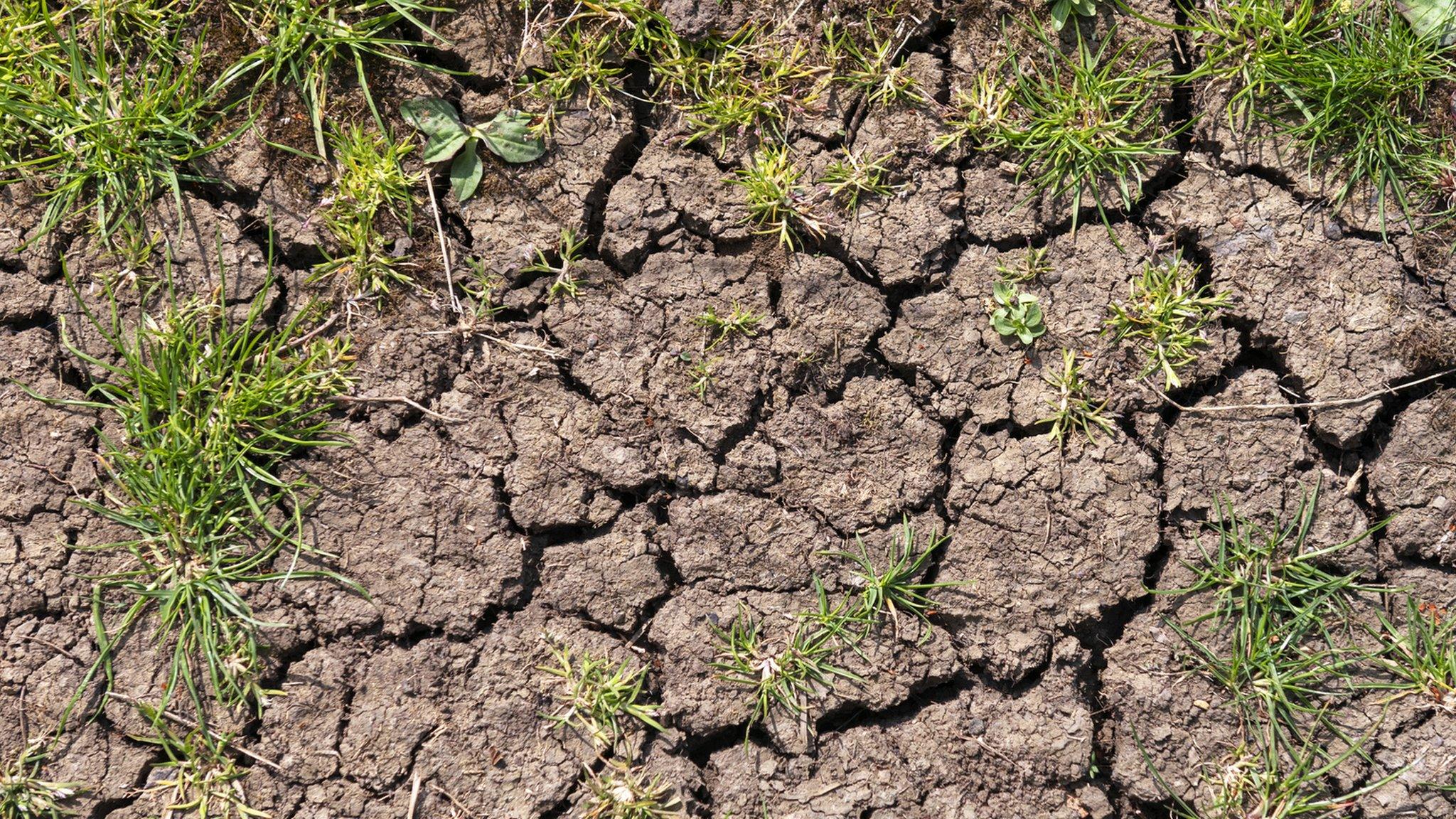Anglian Water says shortages pose 'significant risk' to region
- Published

Anglian Water supplies drinking water to 4.3 million customers across the East of England
Rising temperatures, low rainfall and population increase pose a "significant risk" to water supplies in the East of England, a water company says.
Anglian Water commissioned a report - called "Thriving East" - setting out the challenges the region face.
It said it would be investing £9bn to "ensure the future environmental and social resilience of the region".
The Cambridgeshire-based company has debts of about £6bn and was given a two-star government grading in July.
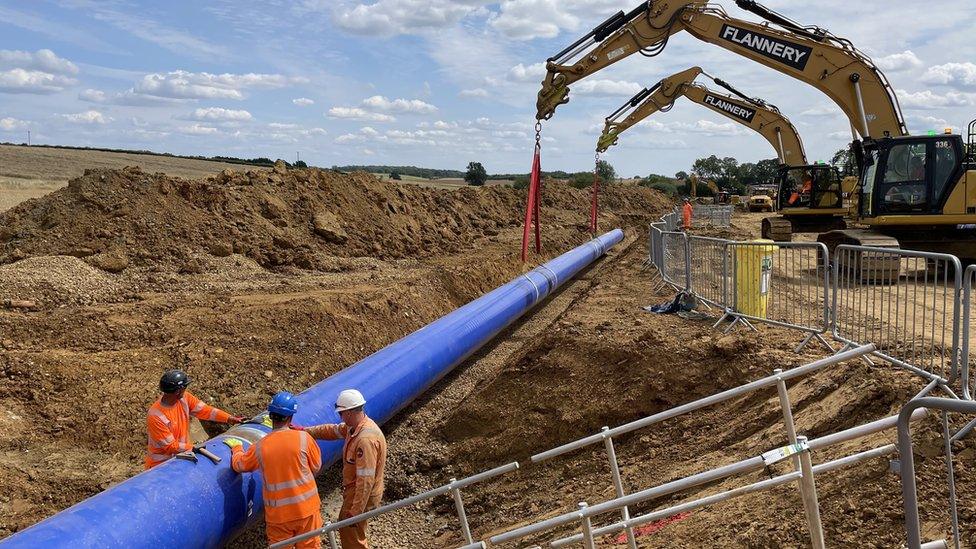
Anglian Water has been installing a £500m pipe from Humberside to south Essex
Anglian Water supplies parts of Bedfordshire, Buckinghamshire, Cambridgeshire, Essex, Lincolnshire, Norfolk, Northamptonshire, Rutland and Suffolk - as well as Hartlepool in north-east England.
The report says the challenges facing the East of England "are some of the severest in the country, second only to London".
The plan, for 2025 to 2030, will create 7,000 jobs, it said.
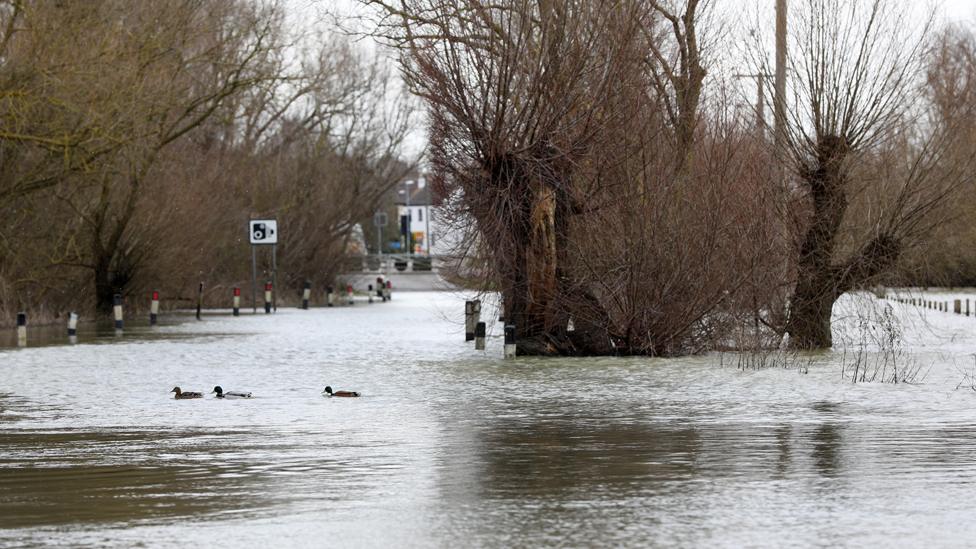
Flooded roads in St Ives, Cambridgeshire
The East has a population of about nine million people, which is set to increase by about 700,000 over the next 20 years.
Essex is the most heavily-populated area, while Cambridge, Peterborough, Milton Keynes, and Northampton are four of the UK's fastest-growing cities and towns, the report found.
"By 2043 temperatures are set to increase by more than the national average as rainfall hits record low", it said.
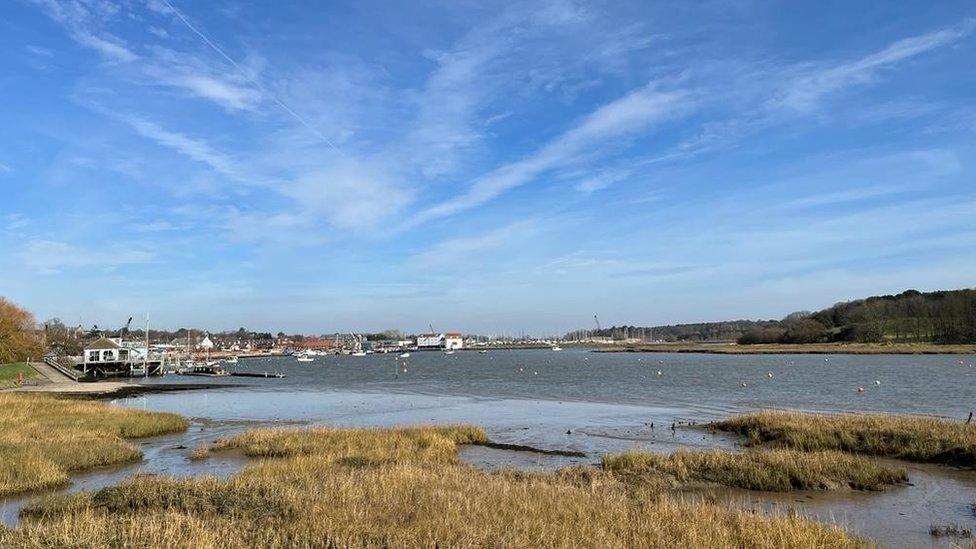
Anglian Water will spent £16.9m to improve bathing water quality in the Deben Estuary
Millions will be spent on a number of projects that will see improvements in every county, Anglian Water said.
In Essex, £93m will go towards improving bathing water quality by reducing storm overflow spills.
Suffolk will see £31.8m spent on reducing the amount of phosphorous in treated water being released into rivers, and a further £16.9m will be used to improve bathing water quality in the Deben Estuary.
Storm tank capacity will be increased in nine Norfolk recycling centres, set to cost £63m, to improve water quality in the Rivers Bure and Yare.
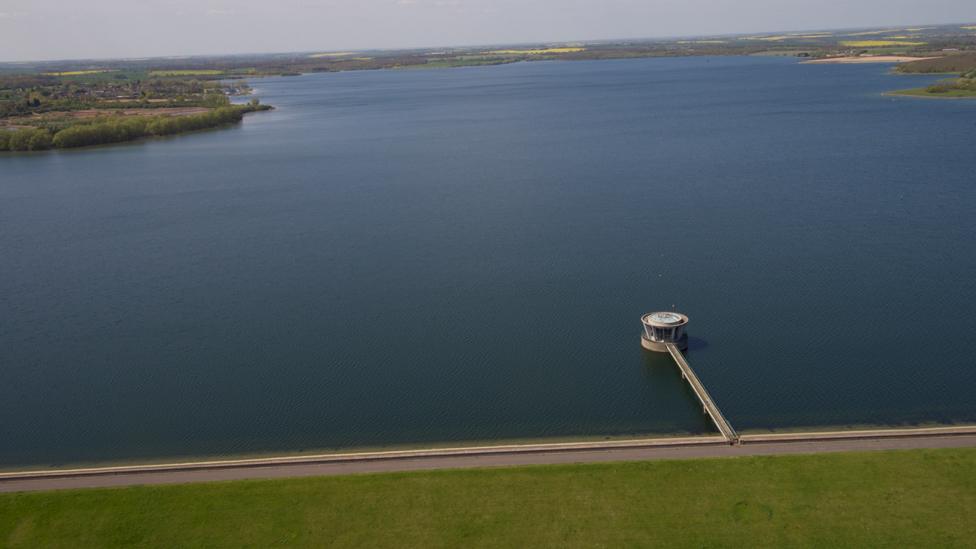
Grafham Water, in Cambridgeshire, is England's third largest reservoir
At the Grafham Water treatment works in Cambridgeshire, £10.1m will go towards removing perfluoroalkyl and polyfluoroalkyl substances - known as forever chemicals - to improve drinking water quality.
Peterborough will have £8m invested to increase drainage capacity to deal with its population growth, and new sewers and drainage systems will be built.
In Bedfordshire, £31m will deal with Bedford's population growth by increasing treatment capacity at the Clapham water treatment works.
To prevent pollution of the River Ouzel in Buckinghamshire, £35m will go towards reducing harmful phosphorous discharged from seven water recycling centres, including Cotton Valley.
More than £20m will be spent in Northamptonshire to reduce storm overflow spills at nine sites.
Spalding Water Recycling Centre, in Lincolnshire, will have £8.4m spent on it to increase treatment capacity.
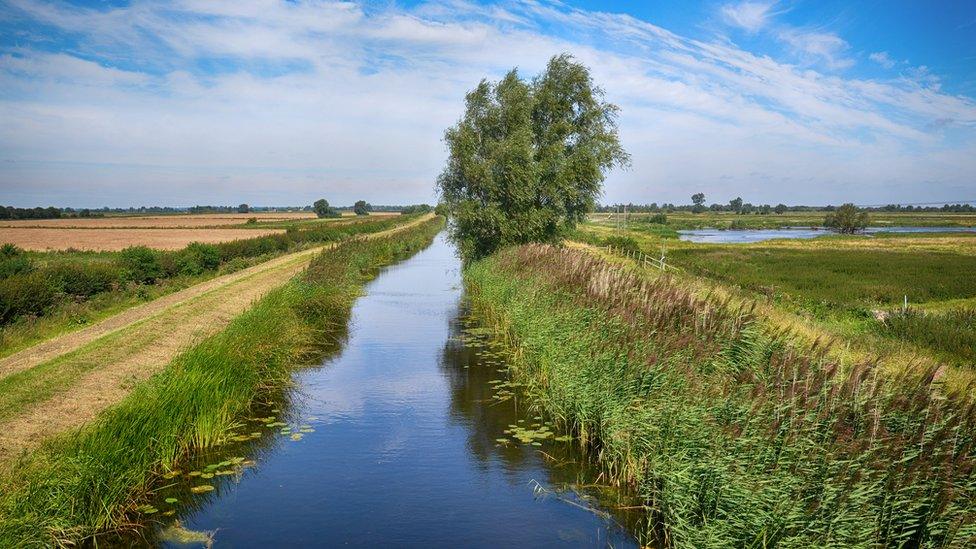
Cambridgeshire contains some of the UK's most fertile agricultural land, and 79% of it is farmland, Anglian Water said
Anglian Water chief executive Peter Simpson said the plan was designed to address its "challenges".
"To achieve this it will require close collaboration with local authorities, businesses, community groups and regulators to unlock opportunities for generations to come," he said.
"We hope that this acts as a rallying cry to help bring together everyone who shares our ambition to capitalise on the many opportunities and in delivering a prosperous, thriving future for the region."
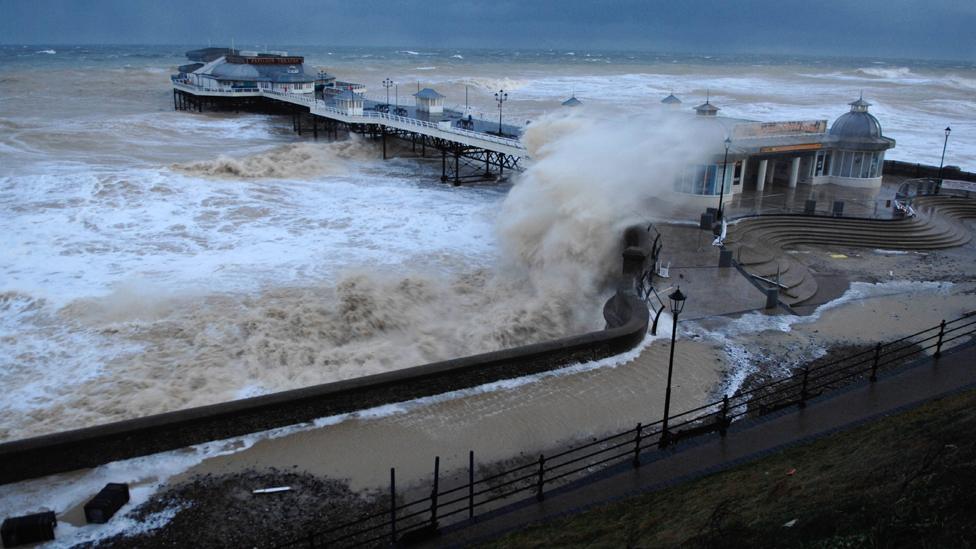
Heavy waves lashing Cromer Pier, in Norfolk

Follow East of England news on Facebook, external, Instagram, external and X, external. Got a story? Email eastofenglandnews@bbc.co.uk, external or WhatsApp 0800 169 1830
Related topics
- Published22 August 2023
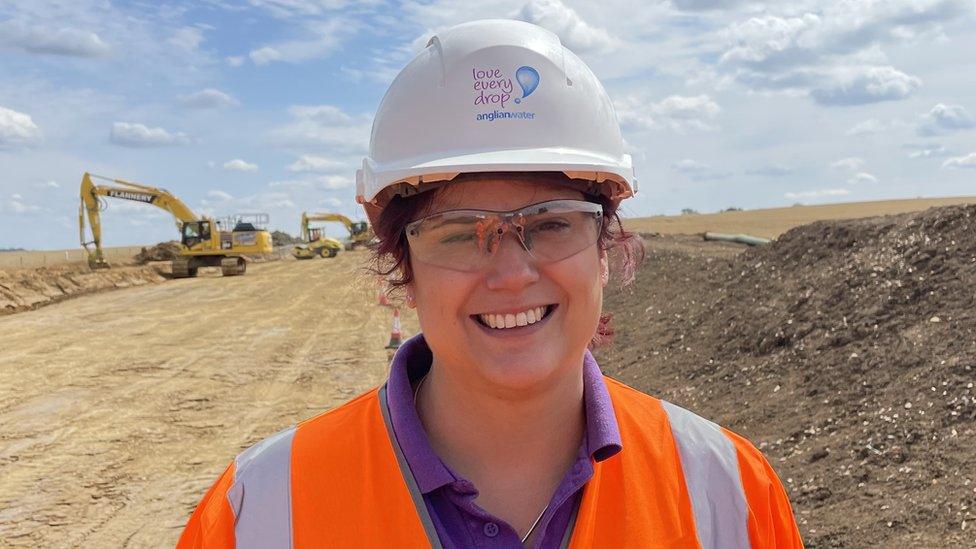
- Published10 August 2023
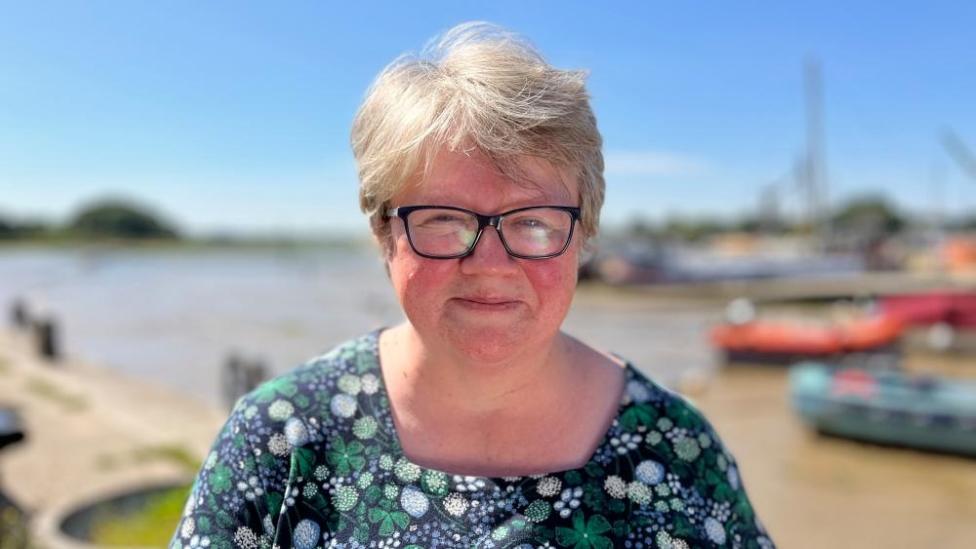
- Published1 August 2023
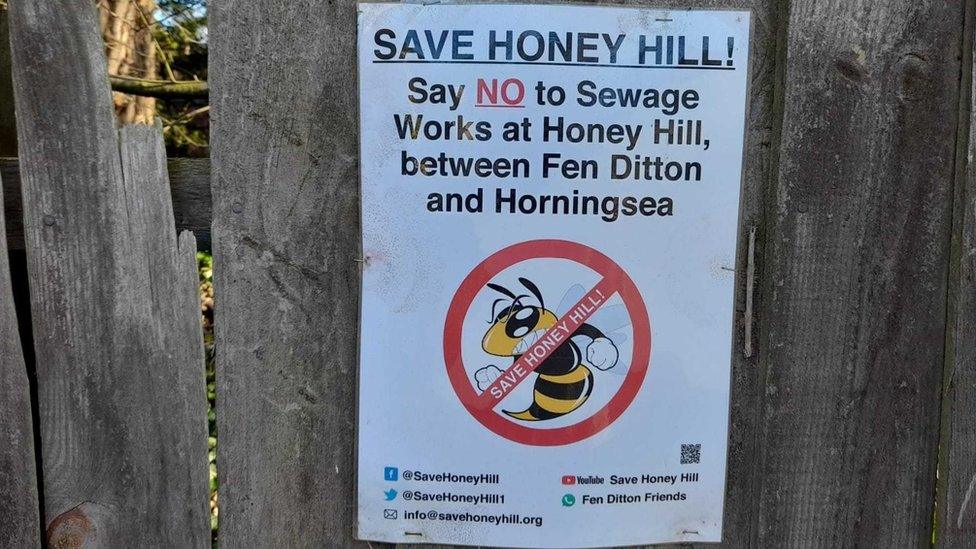
- Published13 July 2023

- Published28 April 2023
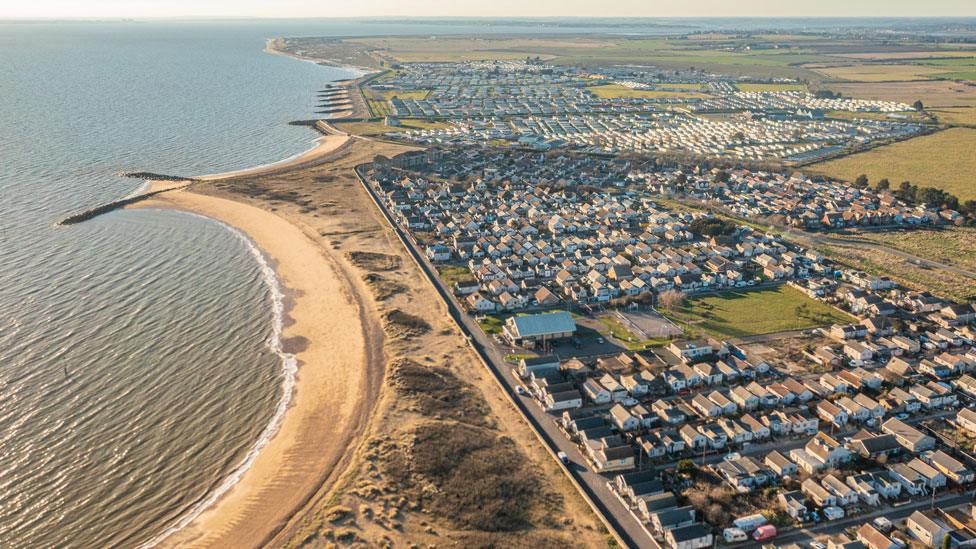
- Published1 March 2023
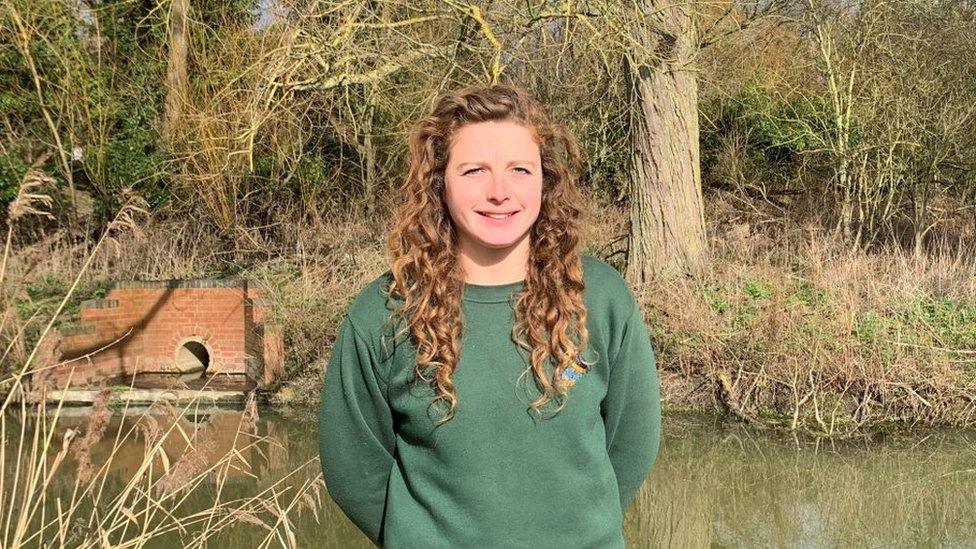
- Published10 October 2022
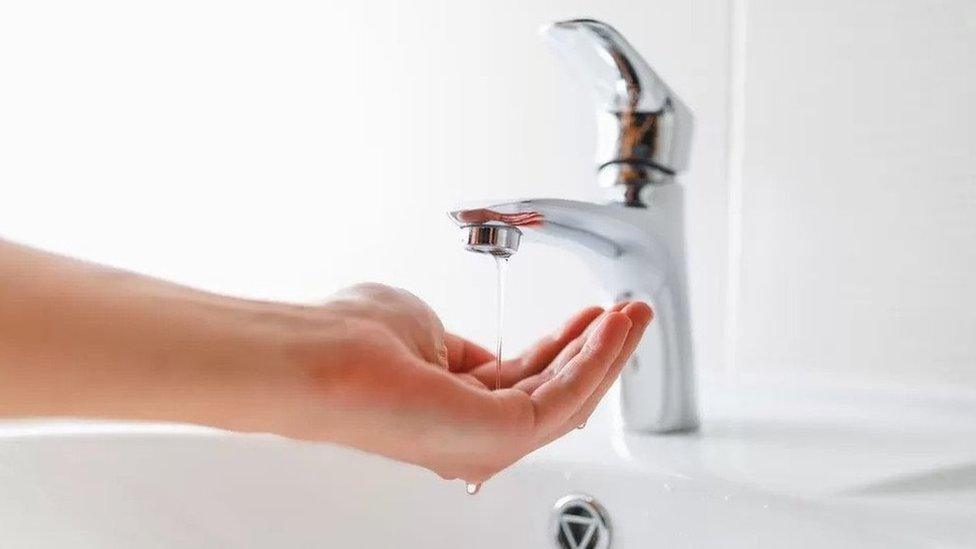
- Published18 July 2022
